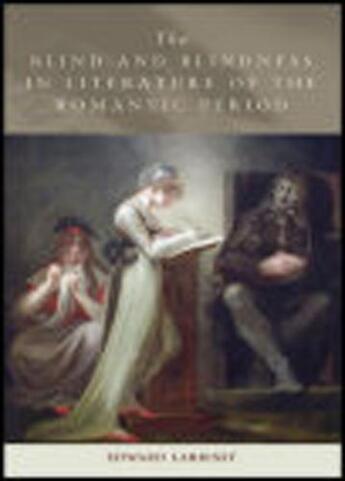-
Nombre de pages : (-)
-
Collection :
(-)
-
Genre :
(-)
-
Thème :
Non attribué
-
Prix littéraire(s) :
(-)
Résumé:
In the first full-length literary-historical study of its subject, Edward Larrissy examines the philosophical and literary background to representations of blindness and the blind in the Romantic period. In detailed studies of literary works he goes on to show how the topic is central to an... Voir plus
In the first full-length literary-historical study of its subject, Edward Larrissy examines the philosophical and literary background to representations of blindness and the blind in the Romantic period. In detailed studies of literary works he goes on to show how the topic is central to an understanding of British and Irish Romantic literature.
While he considers the influence of Milton and the 'Ossian' poems, as well as of philosophers, including Locke, Diderot, Berkeley and Thomas Reid, much of the book is taken up with new readings of writers of the period. These include canonical authors such as Blake, Wordsworth, Scott, Byron, Keats and Percy and Mary Shelley, as well as less well-known writers such as Charlotte Brooke and Ann Batten Cristall. There is also a chapter on the popular genre of improving tales for children by writers such as Barbara Hofland and Mary Sherwood.
Larrissy finds that, despite the nostalgia for a bardic age of inward vision, the chief emphasis in the period is on the compensations of enhanced sensitivity to music and words. This compensation becomes associated with the loss and gain involved in the modernity of a post-bardic age. Representations of blindness and the blind are found to elucidate a tension at the heart of the Romantic period, between the desire for immediacy of vision on the one hand and, on the other, the historical self-consciousness which always attends it.
Donner votre avis














